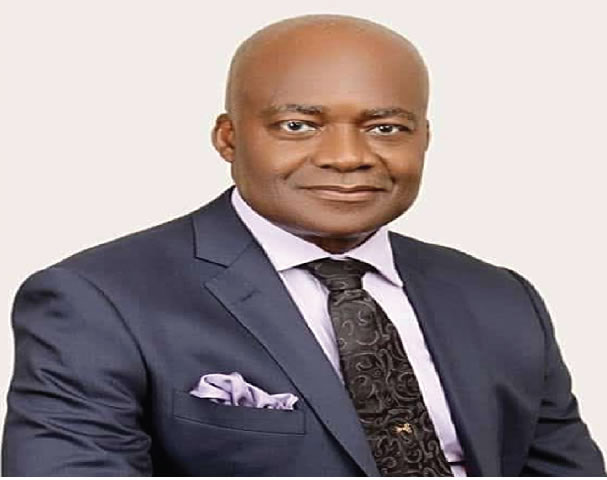
The lawmaker representing Esan North-East/Esan South-East Federal Constituency in Edo State at the House of Representatives, Sergius Ogun, explains to LEKE BAIYEWU why indiscriminate borrowing by a president and excess public debt should be an impeachable offence
Your bill seeking to amend the Fiscal Responsibility Act 2007, and prescribe punishments for breaching the law has passed second reading. Why did you sponsor it?
It is for compliance with the Act. The section in question is Section 41. Subsection 1 says, “The framework for debt management during the financial year shall be based on the following rules: (a) Government at all tiers shall only borrow for capital expenditure and human development, provided that, such borrowing shall be on concessional terms with low interest rate and with a reasonably long amortisation period subject to the approval of the appropriate legislative body where necessary; and (b) Government shall ensure that the level of public debt as a proportion of national income is held at a sustainable level as prescribed by the National Assembly from time to time on the advice of the minister. (2) Notwithstanding the provisions of Subsection 1(a) of this section and subject to the approval of the National Assembly, the Federal Government may borrow from the capital market. (3) Non-compliance with the provisions of this section shall make the action taken an offence.”
So, we have said all the nice things—how you should borrow it, how you should use it, and all that—and that if you deviate from the session, Subsection 3 says it should be an offence. What we have done is seek an amendment to have a new Subsection 3 to prescribe the offence. That is just it.
What are the sanctions you have proposed?
We have said it should be an impeachable offence. The new Subsection 3 that we have sought says, “(3) Non-compliance with the provisions of this section shall make the action taken an impeachable offence and the offender shall be liable on conviction to a fine of N500,000,000 (five hundred million) or imprisonment for a term of three years, or to both such a fine and imprisonment.”
In a political system where it is almost impossible to impeach a sitting president, will this proposal have any effect if the law cannot be enforced against a president who is found guilty of the offence?
It will, because it is one thing to know it is an offence and quite another to say it is an offence with no prescribed penalties—no sanctions.
It is one thing to believe that a president or a governor can be in romance with the legislative arm (of the government) but if something happens, they can swing the other way. I am sure you have been following up that the governor of the Central Bank of Nigeria (Godwin Emefiele) went to see the President, Major General Muhammadu Buhari (retd.) about extending the deadline for exchanging old Naira notes for redesigned notes over the weekend.
The House (of Representatives) had ruled, and the Speaker (Femi Gbajabiamila) spoke on it; that if the CBN governor did not present himself, he would sign a warrant for his arrest. People were saying the Executive…is the Inspector-General of Police not reporting to the President?
Of course, there is a law. We have always touted this romance between the current 9th National Assembly and the Executive, but because there is a law that empowers the Speaker to do that, he latched onto that. Irrespective of the fact that the CBN governor and the President are on the same page on this; despite the fact that the CBN governor went to extract a commitment from the President, the Speaker was still holding on to this (provision of the law).
The fact that the CBN governor appeared and made himself available to be questioned by the committee is no longer breaking news to you.
Also, because in the CBN Act, Section 20(3), it talks about the period for the use and return of the old note, even though it is no longer a legal tender, the CBN governor acknowledged that. Why? It is because it is a law. If you say that the CBN governor is independent and he reports (only) to the president and you don’t put these laws in place, two of them could have met and just decided, and that would have been the end of it.
So, just because you are not able to do something today, that does not mean that you are not going to do it tomorrow.
I will give you an example: if tomorrow you elect a Peter Obi of the Labour Party (as president) and he is not in control of the National Assembly, and you don’t have laws like these and he is spending recklessly, how do you call him to order? So don’t bother to look at what is happening today in Nigeria. When we make laws, it is not for today. These might be laws that our children, grandchildren, and great-grandchildren will implement.
As a result, laws are rarely enacted on the spur of the moment. If you look at the laws we have made, like the Electoral Act, what if we had neglected them? So, we make laws not just for a time; there are so many things that are taken into consideration. If we have a president who might not have this kind of relationship that the 9th Assembly has (with the incumbent president) and he or she is reckless, of course, you can pull out this law.
Does this not also mean that where the president or the executive, by extension, and the legislature belong to the same political family, this law might remain in abeyance?
Not necessarily, if you recall, the last time we had Yakubu Dogara and Bukola Saraki (as Speaker of the House and President of the Senate, respectively), they were members of the All Progressives Congress, but they just couldn’t stomach some of the President’s (Buhari’s) reckless — if I can use the word “reckless” — attitude.
And they took him up on some of those things, like the payment (of almost $500m) for the (12 units of A-29) Super Tucano jets. He did not get the approval of the National Assembly to pay, but those (United States Government) that were selling to us got the approval of Congress to sell. And you cannot pay. I am talking about Sections 80 to 84 of the Constitution, which talk about how money can be released from the Consolidated Revenue Account of the government.
So, that was an infraction. I tell you that I was a member of that parliament (8th Assembly), and we took signatures to impeach the president. It is just the politics of Nigeria; that is why we did not scale through. So, it is always good to make laws because if there are infractions, they can be committed by members of the same political party, but you may just have somebody that will say, “This is the right thing to do, and we must do it this way.”
Section 41 of the Act which you want amended talks about reckless borrowing and excess public debt. Did you see the current Buhari-led regime breaching this part of the law?
Of course! It has been breached. That is why we have proposed this amendment.
Now, if you say it is an offence to do it this way, it is an infraction. So, what? Where is the law that says that I will be punished? So, we are letting them know that whoever succeeds this President and says President Buhari did that, President (Goodluck) Jonathan did it, and President (Umaru) Yar’Adua did that, and that the ones after the law came into effect did not obey it, does not mean that we should leave it like that. That is why we have a proactive National Assembly.
The current regime is known for its endless borrowing, with the national debt consequently growing. Do you see Buhari appending his signature to this bill if the National Assembly passes it?
He will because he is leaving power. If you see what happened on Tuesday; if you see the Order Paper, you will see the Ways and Means Advances. They are asking for N22.7tn. What was approved was just N1tn because we have said the executive has not engaged enough.
So we set that aside. They can be reckless, but his days in the (presidential) villa are numbered.
After the elections this month, he will be a lame-duck president. Everybody would be talking about the incoming president. He knows that if we want to start an impeachment proceeding against him, we don’t even have the number of days required. He knows that this law is not going to work against him because he is on his way out.





